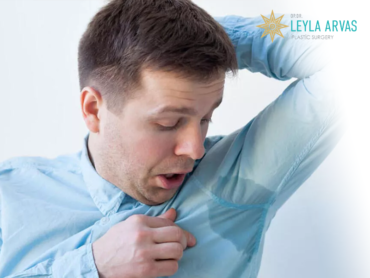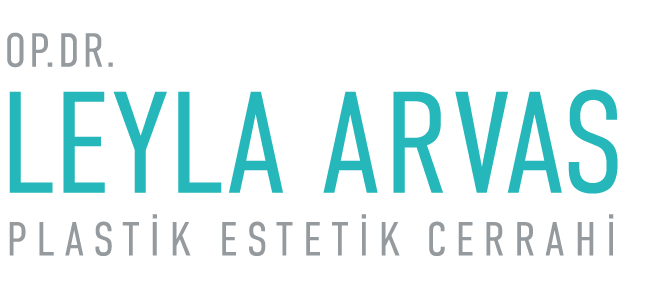
Excessive sweating treatment is a type of therapy aimed at addressing the overactive sweat glands in various areas of the body due to various reasons. The most commonly affected areas of excessive sweating include the palms, soles of the feet, groin, neck, and underarms where sweat glands are highly concentrated. Excessive sweating, also known as hyperhidrosis, can cause embarrassment, self-consciousness, and social withdrawal, significantly impacting an individual’s daily life. The goal of sweat treatment is to restore the function of the overactive sweat glands to normal levels and alleviate the negative effects caused by excessive sweating.
What is Excessive Sweating?
Excessive sweating, or hyperhidrosis, is an unwanted condition that many people may experience. Sweating is a physiological response of the body to regulate temperature under normal circumstances. However, individuals with excessive sweating problems experience uncontrollable sweating beyond what is necessary for temperature regulation, regardless of factors such as hot weather or humidity. Excessive sweating can occur even without exerting much effort, causing situations such as sweating profusely from the palms while being stationary. This condition can also be specific, such as only occurring while eating, known as Frey syndrome. Excessive sweating affects approximately 1% of the population in our country and can cause various discomforts, leading individuals to seek solutions.
What Causes Excessive Sweating?
Determining the exact cause of excessive sweating can be challenging as sometimes the underlying reason cannot be identified. The common factors contributing to excessive sweating in areas such as palms, soles, and underarms often include hormonal imbalances, intense stress, genetic predisposition, and side effects of certain medications. Pregnancy, particularly during hot summer months or with added weight gain, can lead to excessive sweating. Women in menopausal stages also frequently experience excessive sweating; however, this usually subsides as hormonal fluctuations stabilize. Adolescents may experience excessive sweating due to heightened emotions like excitement, shyness, exam stress, or fear of failure, but this may not persist beyond adolescence and the completion of personal development. Excessive alcohol consumption and drug use can also trigger excessive sweating.
Various circulatory system disorders, hormonal imbalances (especially hyperthyroidism), certain neurological conditions, disruptions in sugar metabolism, and blood pressure issues can contribute to excessive sweating. Being overweight is also a factor that can increase sweating. In some cases, individuals may experience excessive sweating without any underlying health issues. Excessive sweating not only causes aesthetic and social discomfort but can also lead to social phobia for highly sensitive individuals. Excessive underarm sweating, despite using deodorant, can create unwanted sweat odor or stains on clothing, making individuals avoid simple greetings like handshakes. Excessive foot sweating can lead to shoe restrictions, slippage and injuries while wearing slippers, and soaked socks during winter. Excessive sweating regions are prone to bacterial and fungal infections due to the favorable environment for their growth. The softened tissues exposed to excessive moisture and friction can develop diaper rash, sores, and subsequent infections. Excessive sweating can also have a negative psychological impact on individuals. However, it is possible to alleviate the discomfort caused by excessive sweating by treating the condition.
How is Excessive Sweating Treated?
There are several treatment methods available for excessive sweating, which have been found to be effective and easily applicable to individuals suffering from this condition. The most common and widely used treatment is the application of botulinum toxin, commonly known as Botox, to reduce sweating. Before the botulinum toxin treatment, a starch-iodine test is conducted to determine the exact location of excessive sweating. The botulinum toxin treatment aims to block the sweat glands’ excessive activity by utilizing the principle of inhibiting the release of acetylcholine, which stimulates the sweat glands. The effectiveness of botulinum toxin treatment becomes evident within approximately one week after the injection. An anesthetic cream is applied to the treatment area before the botulinum toxin injection to minimize any discomfort or pain during the procedure. Specialized thin needles are used to inject the botulinum toxin into the subcutaneous layer of the targeted area. While the duration of the effect may vary from person to person, individuals can typically remain sweat-free for an average of six to twelve months after the botulinum toxin treatment. When excessive sweating increases again, the botulinum toxin treatment can be repeated to maintain the desired results. Botulinum toxin treatment for excessive sweating is safe and does not have any known side effects.
For a permanent solution, surgical methods can be applied. Surgical interventions, such as sympathectomy, involve the surgical manipulation of nerves and sweat glands in the areas where excessive sweating occurs, effectively resolving the problem. Endoscopic thoracic sympathectomy (ETS) is a common surgical procedure conducted under general anesthesia, offering a success rate of approximately 90%. Research conducted on patients who underwent surgical treatment has shown that 60% of them did not experience a recurrence of excessive sweating.
Excessive Sweating Treatment Costs
The costs of excessive sweating treatment can vary depending on factors such as the amount of material used and the number of sessions required for the specific area of excessive sweating. In our clinic, we provide high-quality and FDA-approved botulinum toxin treatment to eliminate your excessive sweating concerns, allowing you to regain your desired comfort and freedom from excessive sweating. If you are seeking a solution for excessive sweating, you can contact our clinic at +902122414624 to schedule an appointment, receive more detailed information, and get answers to all your questions regarding excessive sweating treatment.
